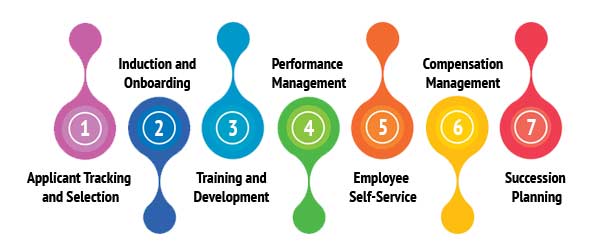Human Resources make up the main competitive and the unique value proposition that any organization brings. As such, it is crucial that talent management in the modern enterprise be completely in sync with the business objectives and goals. This is not only restricted to human resources professionals- a significant portion of this responsibility also lies with business ownership in order to ensure that talent management strategy of any enterprise is completely aligned to the business goals and more importantly growth strategies.

With rapid globalization, human resource professionals have become the de-facto business planners and talent management strategy makes successful organizations stand out. Here are a few key concepts and strategies that human resource professionals should keep in mind when framing their plans, so that they make the right impact that their business ownership demands, both in terms of goals and in terms of growth:
Talent Mapping – Talent Mapping, especially in ones industry, is one of the key concepts of Talent Management strategy in the modern era of globalized and technologically connected organizations across the world. Talent Mapping is essentially tracking down skilled resources in the same industry for present or future hires. This has the twin benefits of not only reducing the turnaround time of hiring, but also build a solid succession plan for the organization. Performance bench marking of ones own employees against others in the same industry, is of course, another big side- benefit of accurate talent mapping.
People Empowerment- As the new generation workforce takes over managerial and leadership roles, it is important for human resources professionals to enhance their independent decision making skills. Talent Management professionals today should aim to match opportunities and capabilities in a way that is beneficial for the entire organization. This has the dual impact of successful leadership grooming as well as bring about new dimensions in decision making, at par with modern thinking and has most often proved to provide a significant competitive edge to the organization.
Performance Planning- performance management is today perhaps one of the most important roles of Human resource professionals in their talent management strategy. Performance planning in voles framing responsibilities, goals and objectives clearly for each member of the workforce in complete alignment to business goals, and then communicating them to the workforce in a clear and concise manner. This brings about significant transparency in the Talent Management process and not only helps in motivating employees to perform better, but also retain them in the organization for a longer period of time.
Strategic Manpower Planning- Strategic Manpower planning is one of the keys to Talent Management success. Planning not only the skills requirements for a role, but also several other key factors such as industry background, education, previous employment performance and even workplace psychological traits will not only ensure that the right person is hired for the right job at the right time, but also that a complete 100% of the workforce is aligned exactly as the business ownership requires them to be.
HR professionals today form the backbone of a successful organization. Talent Management Strategy that is aligned to business growth will ensure there is never a dearth of required skills in the organization, and thereby, propel it forward. Plan well today to create a great impact tomorrow!



